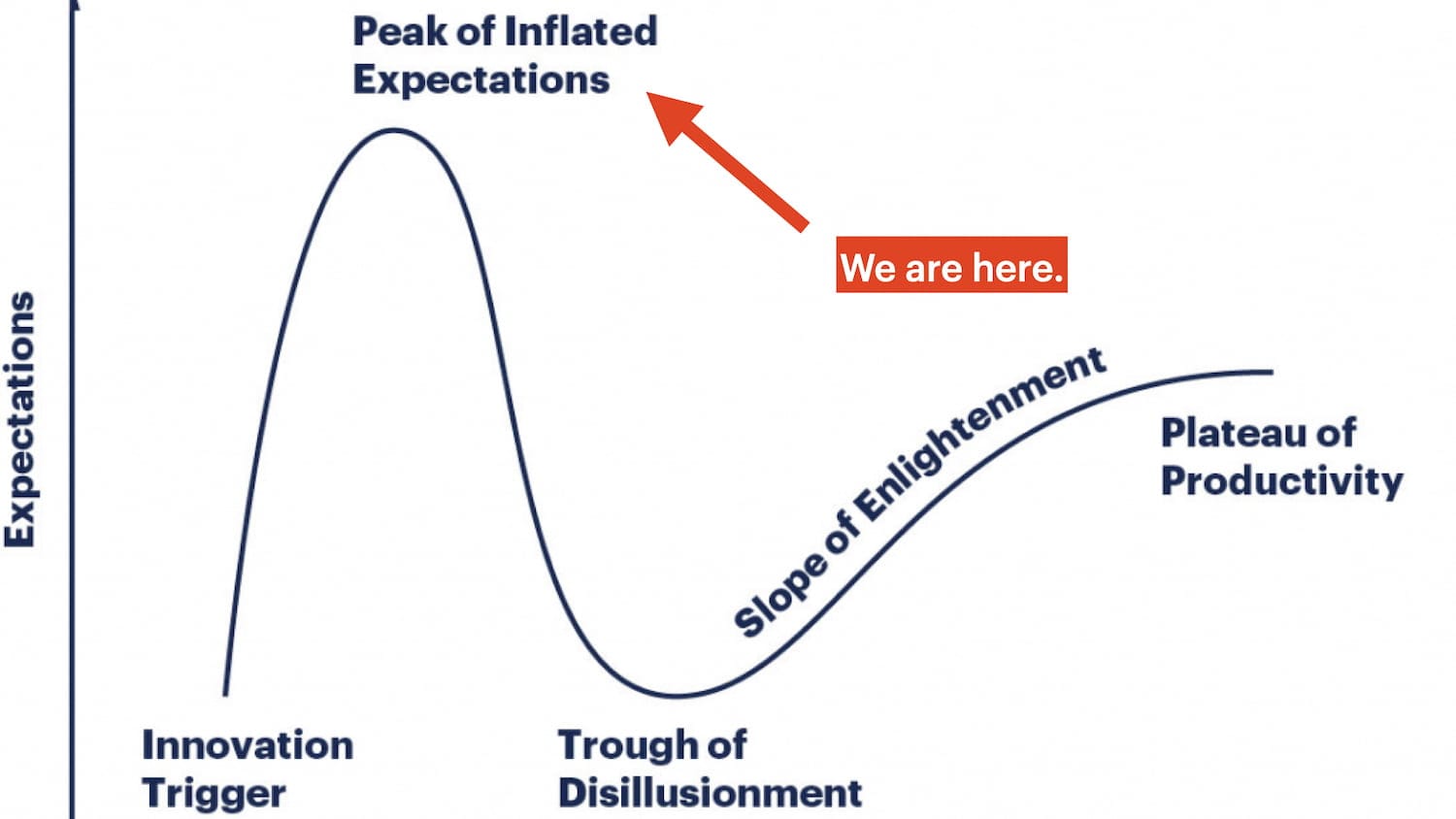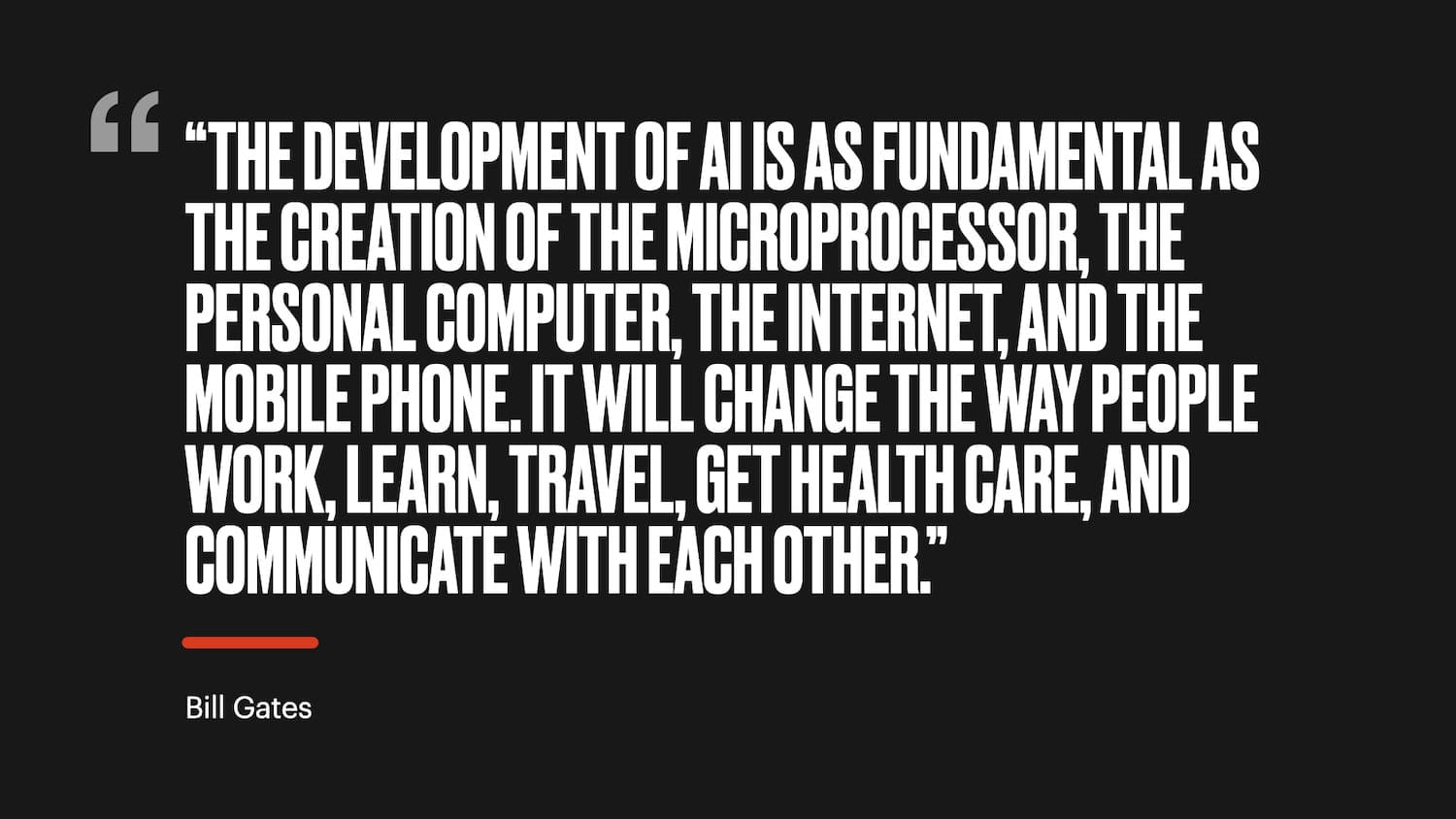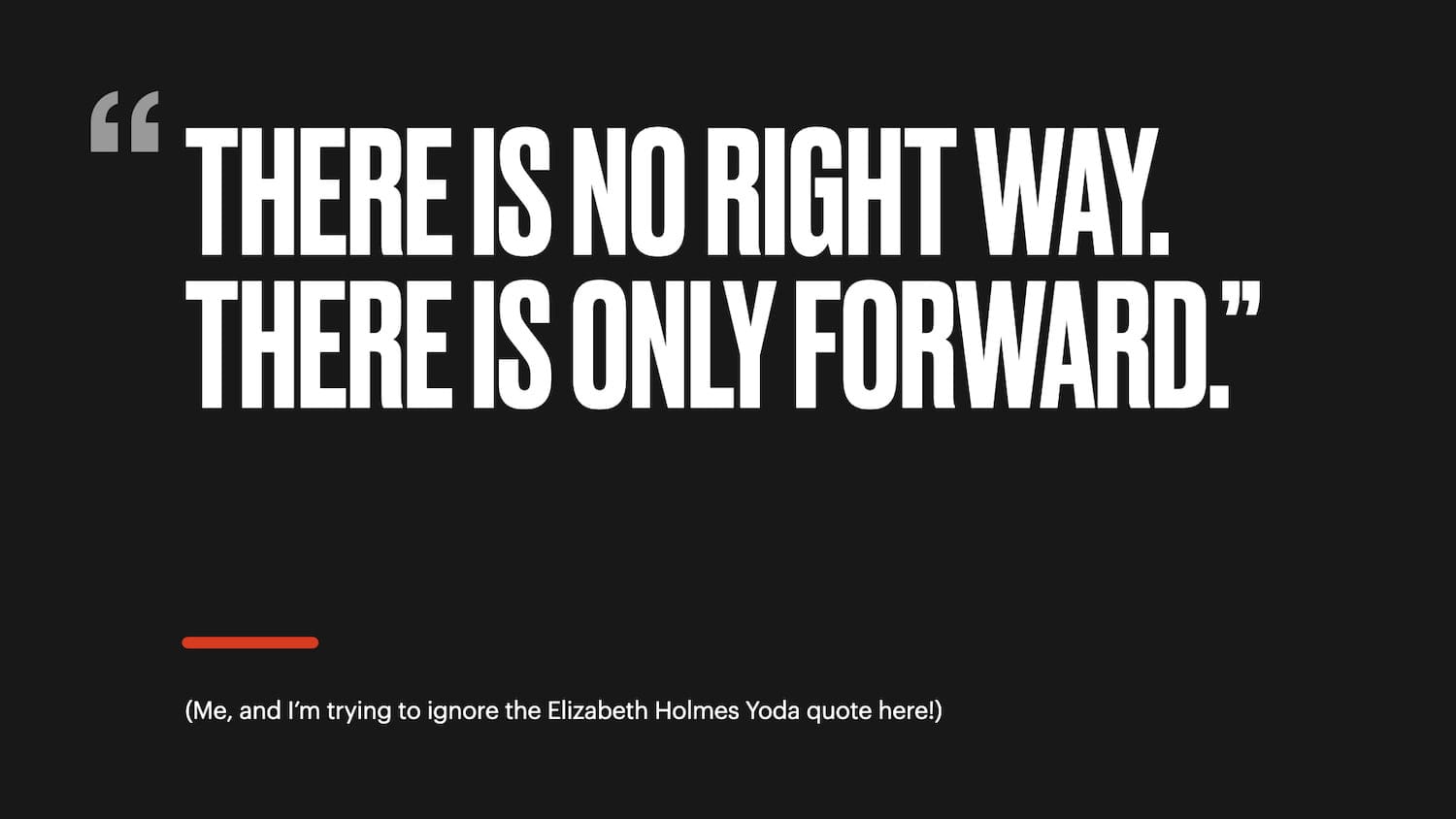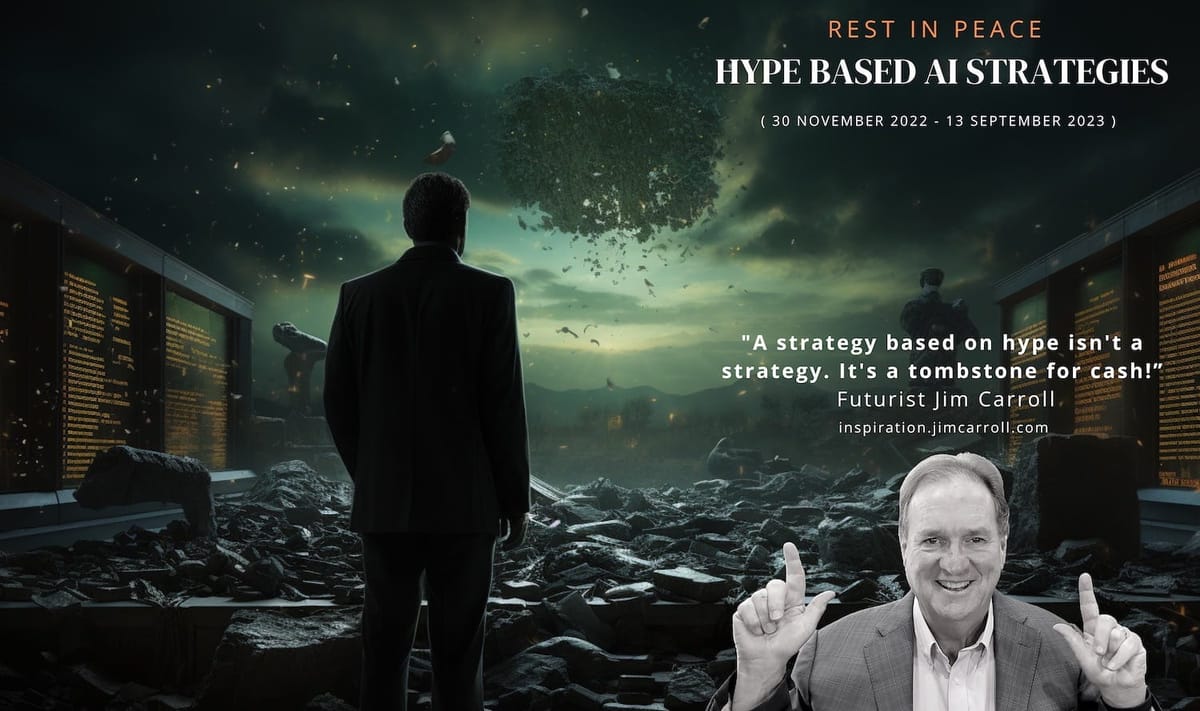Midjourney prompt: "A business executive stands to the far right of a photorealistic image, embarassed, by a tombstone emblazoned with the symbol of cash. The image is dark, foreboding. There are AI algorithms in the sky, suggesting some misspent adventure in falling for the hype of artificial intelligence"
You have a decision to make.
Today is the day you should draw a line in the sand. Yesterday - September 13, 2023 - should be the day that you stopped the madness.
Because at this very moment, you are making the decision that yesterday was the last day in which you will tolerate an AI strategy based on hype; on chasing technology for the purpose of chasing technology; of trying to mold and shape your business to fit the AI juggernaut rather than twisting and forming AI to solve problems in your business.
Because you are here, along with everyone else.

We are clearly at the peak of overinflated expectations when it comes to AI.
Hear me out. Here's a series of slides that I'm using for an event next week, where I will be speaking to 60 CEOs of various software companies about AI. I intend to put some rationality into the discussions.
First off, the worst thing to ever happen in the last year with leadership, the future, trends, and AI, was when the CEO of IBM said this:

International Business Machines Corp. Chief Executive Officer Arvind Krishna said the company expects to pause hiring for roles it thinks could be replaced with artificial intelligence in the coming years.
Hiring in back-office functions — such as human resources — will be suspended or slowed, Krishna said in an interview.
IBM to Pause Hiring for Jobs That AI Could Do
Bloomberg, May 1, 2023
Such a statement is, to say the least, pretty preposterous. It's the type of hype that technology executives regularly make in the excitement of the moment, at the peak of inflated expectations. It's pure negligence, and yet, is buried deep within the soul of every tech executive trying to sell you something. And yet I can assure you, otherwise rational executives everywhere took his words to heart, and are searching for how to do this. I can tell by some of the inquiries I am getting, which seem to be asking the question - "how do we implement the magical cost-cutting and massive operational efficiencies that AI offers us today."
The honest truth is, you can't.
That doesn't mean that I don't believe that something big and profound is happening. There is. I also happen to believe that what Bill Gates suggests here bears merit:

“The development of AI is as fundamental as the creation of the microprocessor, the personal computer, the Internet, and the mobile phone. It will change the way people work, learn, travel, get health care, and communicate with each other.”
That's why I emphasize this perspective - that many other rational people seem to be saying at the same time - even those chasing those elusive transformative changes.

"AI is about to change the world — the problem is, no one's quite sure how."
Even so, I think we do have some clarity on how AI will change our world. Here's my next slide in the sequence:

This Doesn't Mean You Can Wait
You Need to Think How It Will Change
- the products you develop
- the services you deliver
- the methodologies you use
- the materials at the heart of it
- the skills that are required
- the speed with which you operate
- the speed at which you are impacted
- the competitors that you face
- the revenue that you generate
- the age group of those you were up against
- the collaboration you require
All of which led me to introduce this slide into the deck.

THERE IS NO RIGHT WAY.
THERE IS ONLY FORWARD.
(Me, and I'm trying to ignore the Elizabeth Holmes Yoda quote here!)
This is where we are today.
Act and strategize accordingly.
Futurist Jim Carroll lost a number of speaking engagements about cryptocurrency when he advised potential clients that the technology and concept were probably going to implode. He takes pride in the integrity and honesty of his work.

